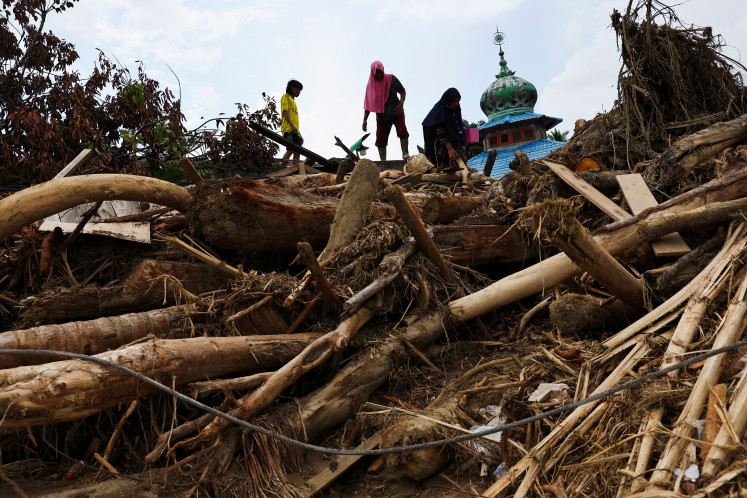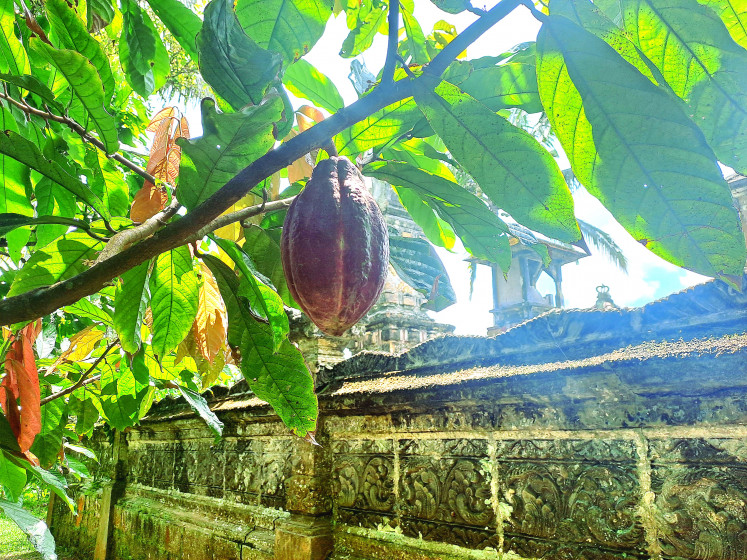Popular Reads
Top Results
Can't find what you're looking for?
View all search resultsPopular Reads
Top Results
Can't find what you're looking for?
View all search resultsPopularization of literature
Visitors look for their favorites among piles of discounted books
Change text size
Gift Premium Articles
to Anyone
Visitors look for their favorites among piles of discounted books. (Antara/Saptono)
The criticism of chick-lit is that it merely talks about women rather than fighting for them. Its urban setting, closely related to consumerism, lacks a deeper analysis of the comedy or tragedy of the human condition.
It delights in casual jokes, uncomplicated in delivery, appeals through the idea of romance triumphant, leaving readers with a sense of unrealistic optimism.
Chick-lit author Alia Zalea has admitted that her main interest in creating novels is the story of Indonesian women pursuing their loves.
'I'm a firm believer that there is someone for everyone in this world. In finding them, however, sometimes you're lucky, sometime you're not,' said Alia, 'If people consider it 'shallow' because it makes people happy instead of making them cringe, or think hard to grasp a novel, then yes, it's OK to be shallow.'
But at a time when people are eager to write and publish their stories, such lightness has come to dominate today's fiction.
Fiction writers nowadays have diverse backgrounds from bankers to statisticians so that casual Indonesian language and insurgent English have replaced the highly-stylized Indonesian used by writers in the 1990s or even the sastra wangi (fragrant literature).
Autobiographical novelists like Andrea Hirata, Ahmad Fuadi and Iwan Setyawan, who discuss their experience of living abroad, make generous use of English and other foreign languages, similar to the language used in chick-lit books.
In a counter movement, chick-lit writers have complicated their romances. Clara Ng writes about domestic violence in Tea for Two, an Indonesian Chinese family in Dimsum Terakhir (The Last Dimsum). Shabrina WS's Always Be in Your Heart is a love story against the backdrop of Timor Leste's separation from Indonesia.
'There is nothing wrong with talking about love. What's important is how authors craft the story,' said Mizan senior editor, Esti Budihapsari.
She believes that pop novels record Indonesia's current culture and lifestyle. 'We live within a culture, and it isn't just dancing and singing but also the way we live. This is the culture that is manifested in writing,' she said.
Another novelist, Ratih Kumala, observes the workers in the country's emergent cigarette industry in Gadis Kretek (Clove Cigarette Girl) in such a casual and humorous way that it does not feel like high-brow reading, yet, still features an era in the country's history.
Okky Madasari presents her stories in an uncomplicated language that allows one to easily understand the story lines, although she discusses weighty issues of politics and freedom.
Literary expert Robertus Robet says the line between literary and non-literary fiction today is getting blurred through many themes and styles, a sign of progress in Indonesian literature.
'We can see that some writers are more ideological in their work and fight for some cause. In that way, we can still consider them literary,' said Robertus.
He believes that rather than getting lost in categorizing fiction, it is better to celebrate the current freedom in the country's literature.
'The government lets literature develop on its own. The only competition is to create better work among the authors,' he said.










